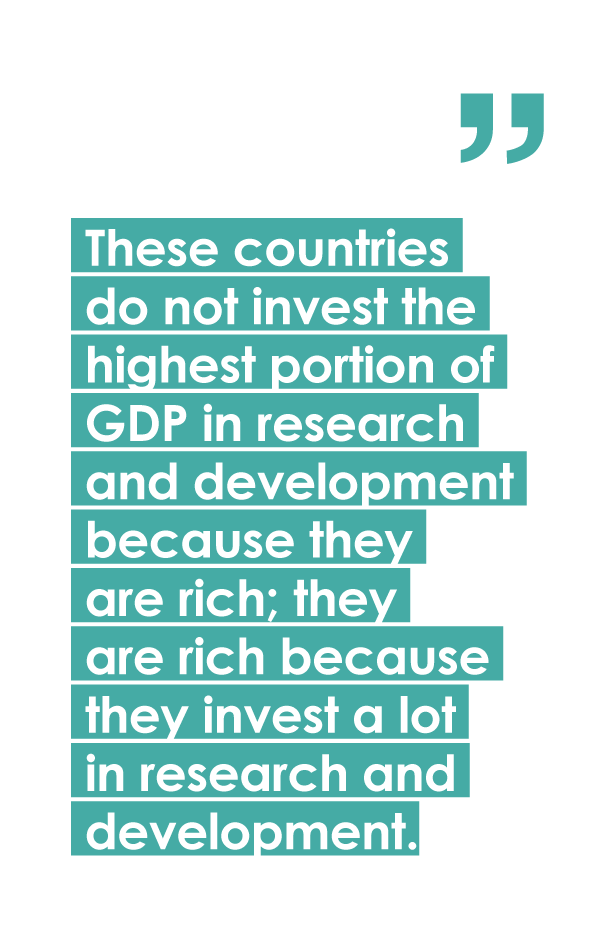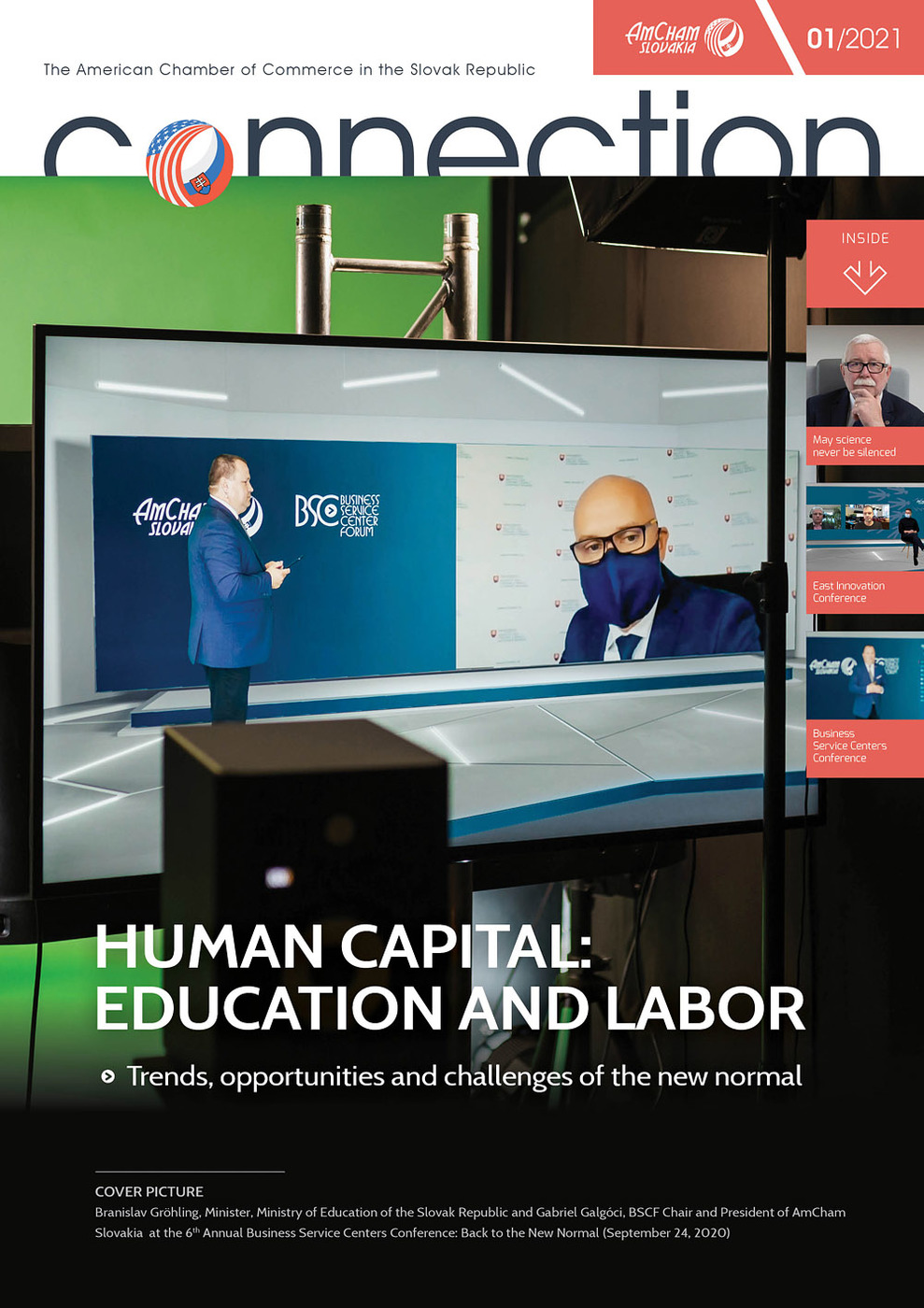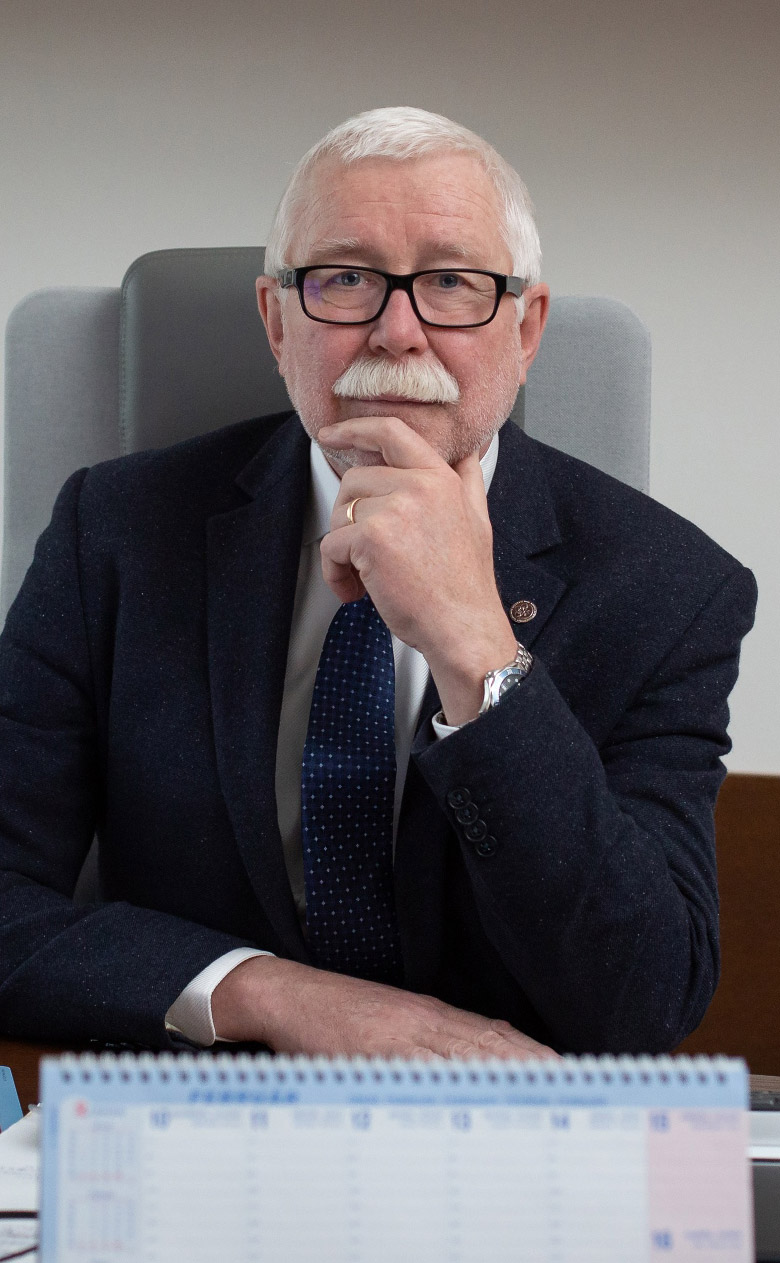This approach stimulates innovations and cultivates society. Well-educated societies support education, research and culture much better than the other, not so cultivated ones. It is not very surprising that these societies/countries are also doing well and have higher living standards. These countries also rank the highest on the innovation scoreboard. This is also an important demand of stakeholders towards academia. It is important to note that these countries do not invest the highest portion of GDP in research and development because they are rich; they are rich because they invest a lot in research and development.
One of the crucial tasks of the present days (together with the problems of diseases, pollution, global warming, epidemics, unemployment, disinformation…) for Slovakia is a change of the structure and quality of the economy. Industry 4.0 is a challenge we are faced with; a substantial change of industry is unavoidable. Green technologies, digital technologies, or artificial intelligence are the phenomena of the future to be seriously solved for a better and sustainable life.
Science with its methods is an indispensable tool for reaching this goal. Science and education are intertwined issues. That is why the categorical imperative of the present must be a permanent effort for improving the quality of education and knowledge - to support the best students, the best scientists, to attract back home the best, who had asserted themselves abroad.
 We have a lot of examples of excellent Slovaks who acquired international recognition abroad. Aurel Stodola was an excellent scientist, teacher and inventor. Aurel Stodola was born in Liptovský Mikuláš in 1859. As a premium student he studied in Levoča, Kežmarok and Košice. Absence of domestic universities pushed him to move to Budapest, Zurich and Sorbonne where he finished his university studies and got his university degree. Aurel Stodola finished his career as a professor in ETH Zurich, not in Slovakia. His contribution to the thermal turbo-machinery, his Law of the Ellipse, or Stodola´s Law which provides the method for calculating the highly nonlinear behavior of multistage turbines are of great importance in this field of research. He died in Zurich in 1942. He never returned home. There was, perhaps, no reason to do so. Stodola´s background was a deep involvement in basic research with an overlap into applied research and development.
We have a lot of examples of excellent Slovaks who acquired international recognition abroad. Aurel Stodola was an excellent scientist, teacher and inventor. Aurel Stodola was born in Liptovský Mikuláš in 1859. As a premium student he studied in Levoča, Kežmarok and Košice. Absence of domestic universities pushed him to move to Budapest, Zurich and Sorbonne where he finished his university studies and got his university degree. Aurel Stodola finished his career as a professor in ETH Zurich, not in Slovakia. His contribution to the thermal turbo-machinery, his Law of the Ellipse, or Stodola´s Law which provides the method for calculating the highly nonlinear behavior of multistage turbines are of great importance in this field of research. He died in Zurich in 1942. He never returned home. There was, perhaps, no reason to do so. Stodola´s background was a deep involvement in basic research with an overlap into applied research and development.
Nevertheless, even nowadays many talented students/researches/scientists from Slovakia say that their return home is almost impossible. Based on my personal visit, we have more than one hundred excellent researchers from Slovakia in ETH Zurich – those who are missed in Slovakia. And this is not the only excellent university/research institute abroad with a great number of Slovak talents.
These people with experience from abroad and a deep relationship to our country can help us reach the ambitious goals of changing the structure and quality of our economy, of our life. Their return is only a part of the solution. The crucial demand is a domestic permanent improvement of education, science and research. We need to have a pool of Slovak scientists/innovators. That is why I strongly support the sentence: May science never be silenced. With the addition: In Slovakia.
Prof. RNDr. Pavol Šajgalík, DrSc. Dr.h.c., President of the Slovak Academy of Sciences



Follow us